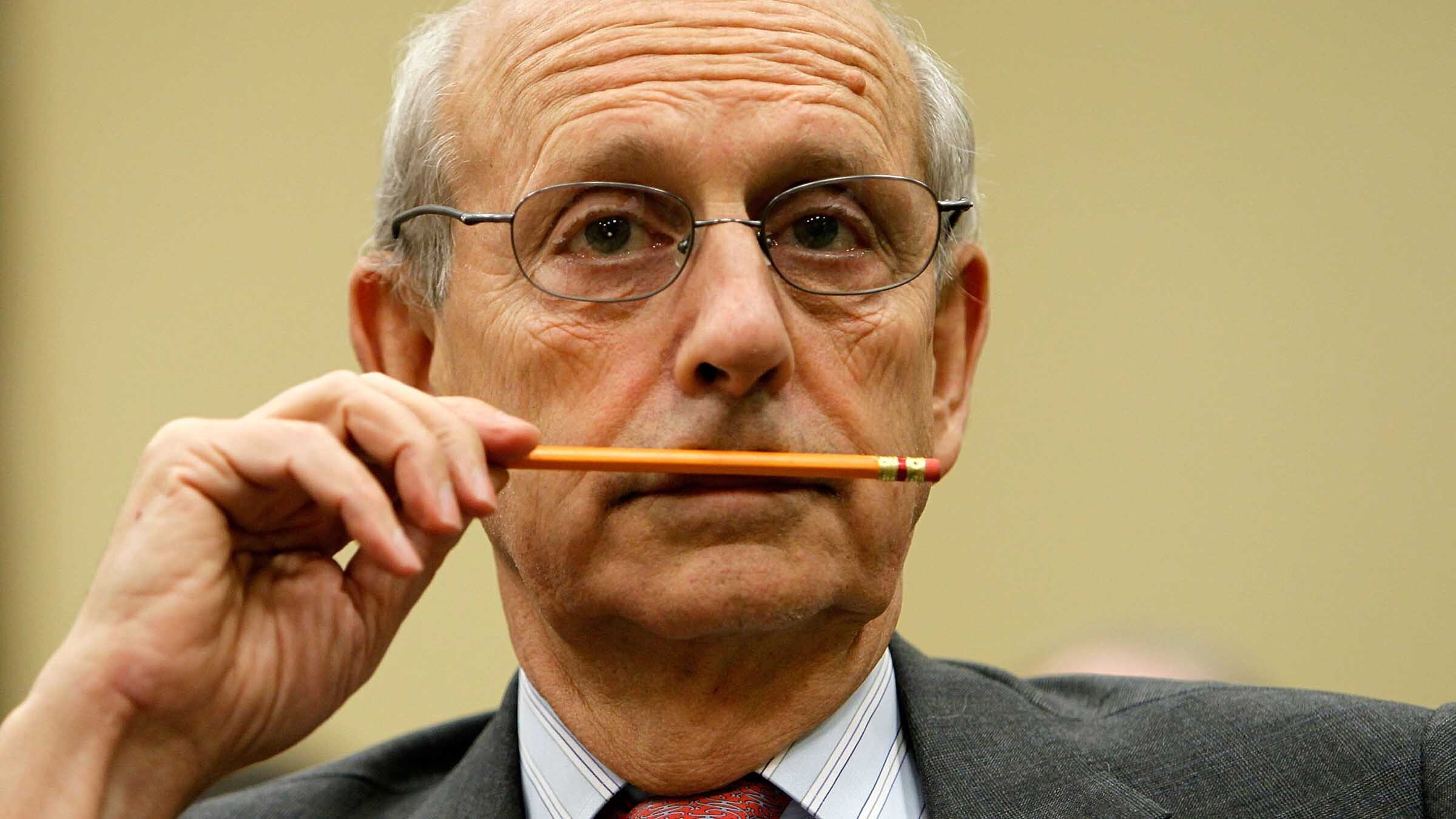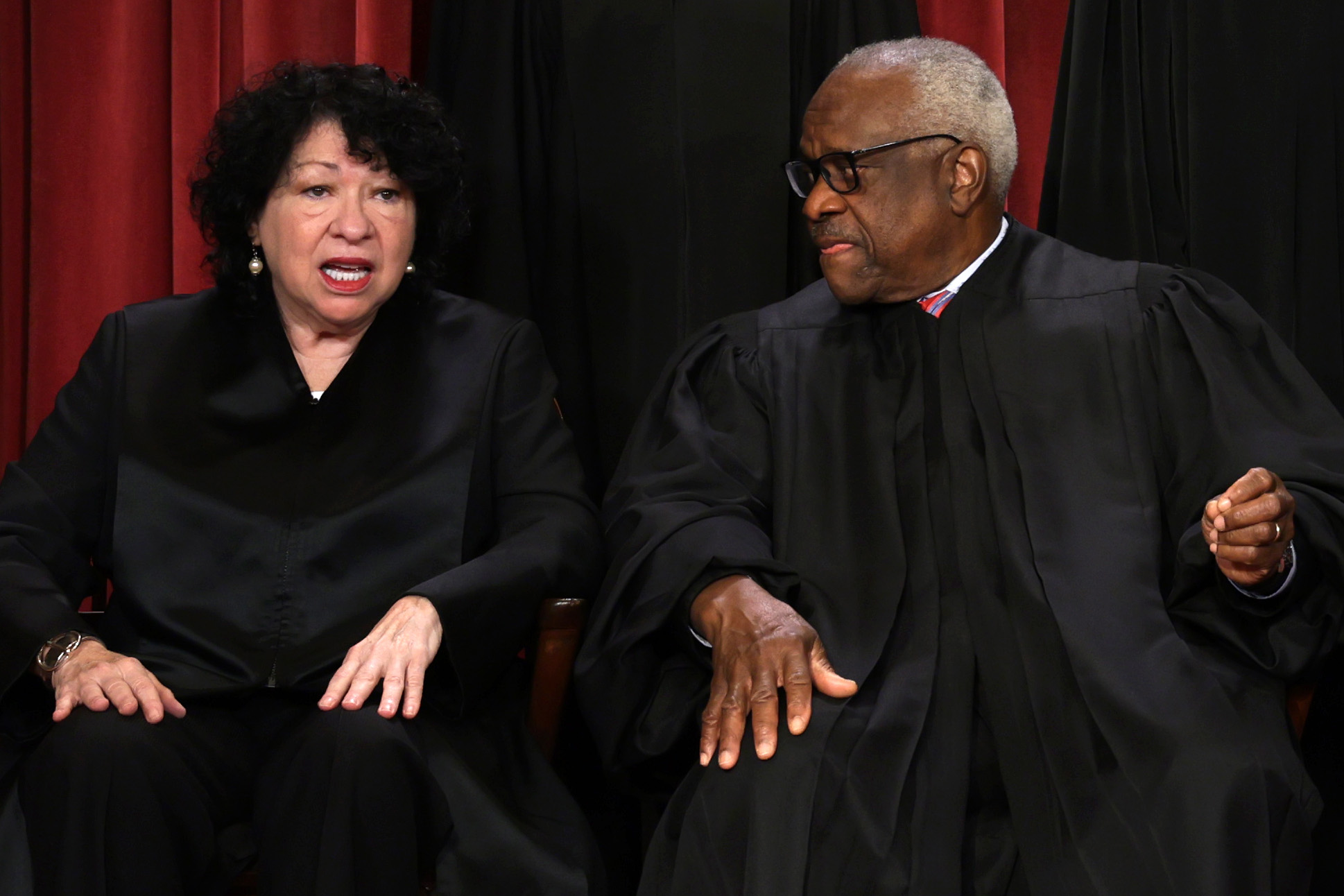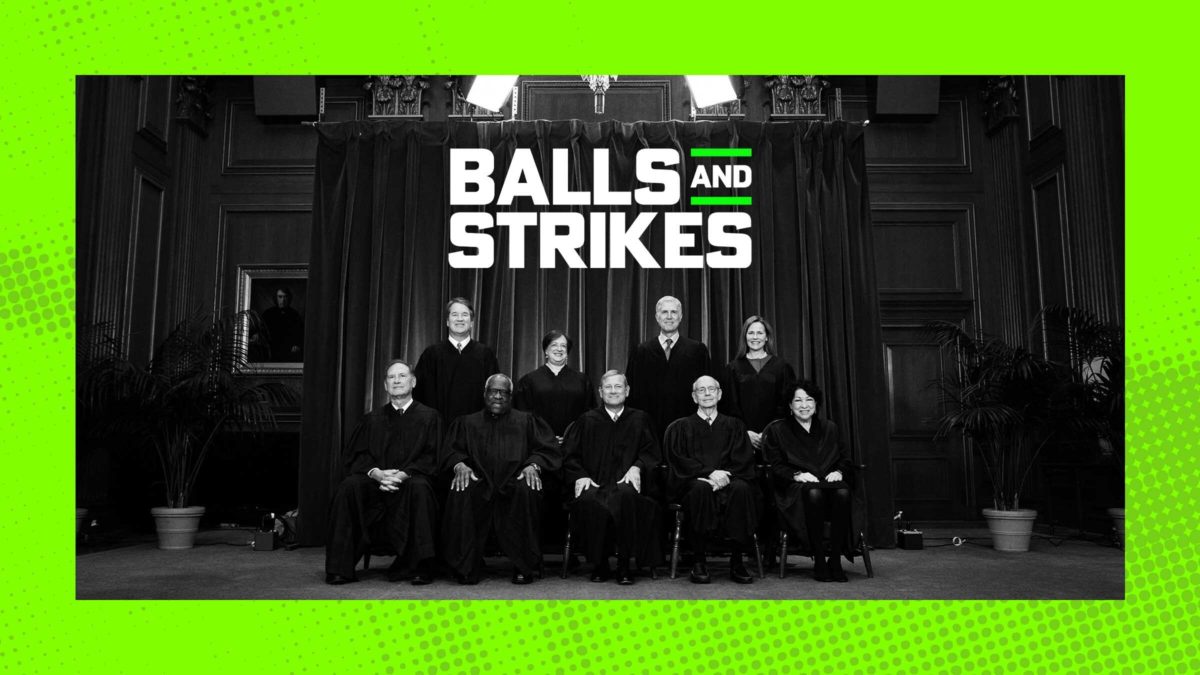Most people envision their retirement years as years of blissful leisure: the opportunity to step away from the mundane day-to-day obligations of one’s profession and take on something new, like watercolor painting or amateur radio.
Former Supreme Court Justice Stephen Breyer, however, has opted for a different approach. Fresh off his final year on the bench, during which his conservative colleagues gleefully stomped all over decades of halting, incremental social progress, Breyer is spending his time assuring people that they needn’t worry about his conservative colleagues any longer.
This, apparently, was the thrust of Breyer’s remarks this week in a forum at Harvard, where he is now a tenured professor who teaches what I can only imagine are the most oversubscribed and least useful classes in a law school course catalog full of them. Per Law360’s Chris Villani, Breyer informed the audience that the Court’s decision in Dobbs v. Jackson Women’s Health Organization, which overturned the half-century-old right to abortion care in June, does not place other fundamental rights recognized by the Court—same-sex marriage, contraceptive access, sexual privacy, and so on—in jeopardy. Justice Samuel Alito’s opinion, he explained, is about the virtues of resolving questions like these “at the ballot box,” a rationale that “has very little to do with marriage and contraception and gay rights.”
Breyer, who famously abhors the idea that judges are “politicians in robes,” also reminded his audience that Alito emphasized that his Dobbs opinion “concerns the constitutional right to abortion and no other right,” and specifically disclaimed the notion that it might “cast doubt” on other similarly-grounded rights. This caveat, to Breyer, comes as a relief: “We have a writing that says this case does not stand for anything outside of abortion,” he said, presumably in the same cadence he’d use when telling a bewildered cop that the wallet inspector had produced an authentic wallet inspector badge upon Breyer’s request.

(Photo by Alex Wong/Getty Images)
I hesitate to spend too much time being upset at Steve Breyer, who already made the correct choice in the most consequential decision of his career: quitting before he dies in office, thus denying President Candace Owens the chance to replace him with a Claremont Institute freak who hasn’t been born yet. But especially for a retired justice who is no longer constrained by the Court’s code of quasi-omerta, you needn’t be worried about your rights because Sam Alito pinky-promised displays a brand of credulousness that I did not think could exist outside the West Wing extended universe. His refusal to offer even mild public criticism of the Court when he no longer faces any consequences for doing so is deeply disappointing, and lays bare just how unprepared the liberal wing’s putative leader was for the Court’s lurch to the right.
Breyer’s outlook on the future of civil rights is, to put it generously, optimistic. Justice Clarence Thomas, for example, remains openly contemptuous of Obergefell v. Hodges, which Thomas in 2020 called an “alteration of the Constitution” that allows “courts and governments to brand religious adherents who believe that marriage is between one man and one woman as bigots.” Alito echoed this cancel culture gripe at a Federalist Society event the following month: “You can’t say that marriage is a union between one man and one woman,” he said. “Now, it’s considered bigotry.” Thomas joined the majority in Dobbs, but wrote separately to call on his colleagues to “reconsider all the Court’s substantive due process precedents,” including Obergefell—cases he described as “errors” that require correction.
Lingering frustrations with Obergefell do not guarantee that this empowered six-justice conservative supermajority will overturn it at their earliest opportunity. But given that this empowered six-justice conservative supermajority is months removed from overturning Roe at its earliest opportunity, ably disproving Breyer’s thesis about the nature of their work, it is insane for him to declare Obergefell beyond Thomas and company’s reach with any degree of confidence. It is not clear to me what support exists for his conclusion, other than his unyielding faith in an institution that has plainly passed him by, and his bottomless trust in erstwhile coworkers who have done nothing to earn it.
Breyer also appears either unaware of or in denial about the strategy the conservative legal movement has been executing for decades, on choice, on guns, on voting rights, on everything—an alarming revelation, given that Breyer spent those decades enjoying a front-row seat to it. Each victory builds on the last, shifting the law rightward until reactionary policy outcomes appear to be the inevitable product of legal process. Last year, while the Court was still considering Dobbs, right-wing activists who smelled blood in the water were lobbying the justices to throw out the rights to same-sex marriage and sexual privacy, too, smearing those decisions as “as lawless” as Roe.
They didn’t succeed this time, Thomas’s wishes notwithstanding. But more challenges like these, armed with Dobbs as a shiny new precedent to cite in their petitions and briefs, are making their way through the federal courts even as you read this sentence. Whatever Alito and company have to say about Obergefell right now, it is only “safe” for as long as they allow it.
To have any hope of success in my lifetime, the legal left needs leaders who understand the stakes of the fight—who appreciate that the Court’s decisions govern the lives of millions of real people, and that cases are not scintillating academic exercises for thoughtful appellate lawyers to puzzle over. Yet an unsettling number of prominent liberals are most concerned with persuading the next generation of lawyers that a system unraveling before their eyes is entirely on the up-and-up. Alito must feel like the luckiest culture warrior in the world: After writing a deeply unpopular opinion that plunged the Court’s approval rating into the depths of the sea, one of his chief antagonists is out here volunteering as his unofficial publicist.
Maybe Stephen Breyer was never going to step down from the bench and emerge on the other side as a steely-eyed, fire-breathing, truth-teller. But his decision to spend his retirement repeating this fairy tale instead of doing literally anything else with his time sets back a progressive legal movement that cannot afford many more setbacks than it has already endured. If Obergefell falls, outraged liberals who point to Alito’s statements in Dobbs as proof of the conservative legal movement’s duplicity will be right. But they will not lose any less.
As always, you can find us at ballsandstrikes.org, or follow us on Twitter @ballsstrikes, or get in touch via[email protected]. Thanks for reading.
This Week In Balls & Strikes
Trump Judge Crafts Spectacularly Dumb Rationale For Trying to Roll Back LGBTQ Civil Rights, James LaRock
The problem with “liberal wins” at the Supreme Court is that lower court Trump judges are trying to hollow them out as quickly as possible.
A New Supreme Court Case Could Make Strikes Too Risky For Union Workers, Yvette Borja
The justices’ decision to hear Glacier Northwest is an ominous sign for labor unions.
A Handy Reading List For the Aspiring Originalist Judge, Nicholas Wallace
The words of the Constitution, for starters (some exceptions apply).
This Week In Other Stuff We Appreciated
Barack Obama Is Wrong to Oppose Expanding the Supreme Court, Mondaire Jones, The Nation
Congressman Mondaire Jones on the former president’s disappointing timidity.
The Supreme Court Could Not Have Timed Its Latest Attack on Unions Any Worse, Terri Gerstein and Jenny Hunter, Slate
As work stoppages threaten to cut in to record corporate profits, the justices take up another case that could make a mockery of the right to strike.
How Liberals Should Confront a Right-Wing Supreme Court, Joseph Fishkin and William Forbath, The New York Times
Fancy appellate lawyers aren’t the only ones who can interpret the Constitution.
This Week In Obscure Photos of Supreme Court Justices On Getty Images


